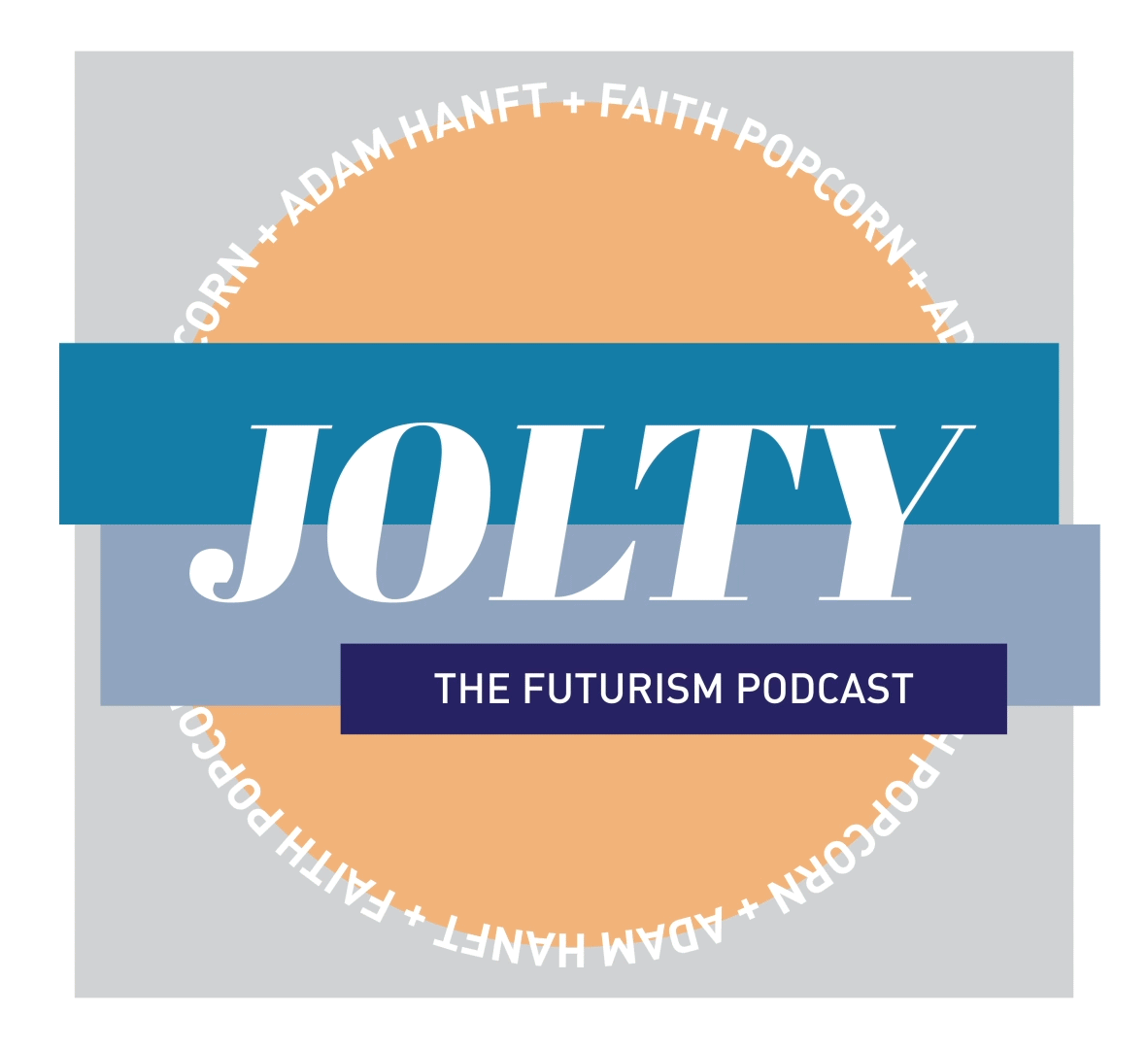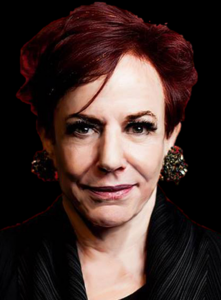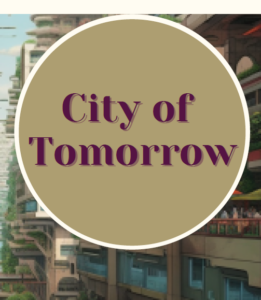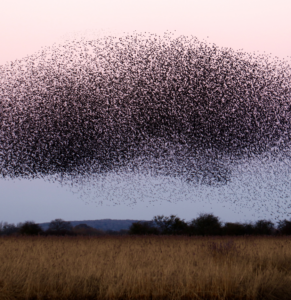June 21st, 2021
In this episode, Maggy, Adam, and Faith connect with Helen Farr-Leander, founder and director of accessories brand Watson & Wolf. What was once a dream to specialize in leather turned into a mission of sustainability, environmental responsibility, and personal accountability in her newest venture. Let’s Jolt!!!
Transcript
Maggy: Welcome to Jolty. I’m Maggy Wilkinson, CEO of Athena. Sometimes a personal revelation can change your professional direction, and today we’re talking to Helen Farr-Leander, founder and director of accessories brand Watson & Wolfe. What was once a dream to specialize in leather has turned into a mission of sustainability, environmental responsibility, and personal accountability in her new business model. And with that, let’s jolt! So Adam, tell us about today’s guest.
Adam: I’m really thrilled that we have a chance, the three of us, to talk to Helen. I was introduced to Helen several months ago by a mutual friend, and we met, and I was just enthralled by the vision, the passion, and I just loved the way she took her background in leather and luxury and brought it to this emerging space, and also her real insight into all of the innovation that’s going on in alternative leathers that I thought would be the basis of a great conversation.
Faith: Shall we let her in?
Helen: Hi!
Adam: Hi, Helen.
Maggy: It’s nice to meet you.
Adam: It’s great to have you. I think it would be great for Faith and Mackie if you just gave them a little background on yourself and what brought you to the business and what the passion, energy was behind it.
Helen: Yes. So I’m founder of Watson & Wolfe. We hand-make luxury wallets, cardholders, bags, accessories. We started back in 2018. Historically, I came from the luxury leather goods industry where I worked for more than 10 years. And after working for several other different brands after that in homewares and men’s accessories, and after starting a family, I wanted to do something for myself. I started out with designing a range of wallets for men, which we were going to make in leather, and at that point, I had no idea about the whole vegan leather scene, the whole sustainability scene, the whole impact on the environment aspects of leather. And then it was sort of, I don’t know, we were probably about six months into developing the brand when I just… I couldn’t find the passion in me. There was something missing. I thought, this is definitely what I wanna do, I wanna have my own brand, I wanna definitely do something for men, but what is it that isn’t there?
Helen: And I went on to Google one evening and typed in ‘the leather industry.’ That was the opening of Pandora’s box for me. I had no idea about the environmental destruction, the child labor, the volume of animals that it demands globally. I had no idea of the statistics, so I dug deeper. At this point, I’m the mother of two small children, and I couldn’t get over the fact that I didn’t want to be part of something that was causing environmental damage for my children. So we began again. I did a whole bunch of research and development about what we didn’t want the business to be about. And this period of time, we’re talking like three months or four months, I ended up going from being a meat eater to being completely vegan.
Helen: And for me, that’s when the passion for the business began, that process of understanding what we were doing to the world and knowing that I had the opportunity to start Watson & Wolfe on a completely different footing, and to say, “That’s not what our brand is gonna be about.” Instead, we’re gonna be conscious about what materials we use, and even if that means we’re gonna be using some contentious materials that people are a bit like, “Oh, what’s that?” And we did come across that at the beginning, even from family members who were like, “What? You’re using what? You’re not doing leather anymore?” No, we’re not gonna do leather anymore. I refuse to use leather now, so let’s look for some materials that are new, that have less impact on our planet, because this is the way it’s going to go.
Helen: You could already tell that there was focus on sustainability, and brands were being asked, where are my clothes made, where is this made, what’s that made from, what’s the environmental impact of that. And it seemed to me that it was only going to be a matter of time before that sort of reached all the industries regardless of what you’re in, even if I have to challenge the status quo, then that’s how it is. That’s how it will be. So that’s how Watson & Wolfe began, and we just started looking for different materials and different suppliers who also cared about what we were doing. That’s where we are today.
Faith: Is there a story to your name of your company, Watson & Wolfe?
Helen: So my dog is called Watson. He’s a miniature sausage dog. It’s a sort of play on words, actually, because although he’s really small, he obviously came from being, millennia ago, being a wolf. So there’s a sort of evolutionary… I’d like to think that we are gonna evolve from using leather to using non-leather products just throughout our entire lives, and that would be the utopia of what our future, the future for our children, looks like.
Adam: When you were in the industry for a long time, did any of these knock-on effects of the leather processing world come up? Did people say, “One day we’re gonna be in a different world, we’re gonna be under more pressure,” or was it just, “Let’s forge ahead, this is all we know?”
Helen: It’s very much… Do you know what, Adam, people don’t… In the industry don’t even think about the animals at all. There’s absolutely no conscious understanding. It was so detached from the fact that this comes from an animal. We’re bothered by the delivery of the skins and how much of it we can use and how much of it is wasted, and whether the color matches the color we normally have, and how different it is, and whether we should complain to the tannery because it’s a shade darker or a shade lighter.
Adam: Right.
Helen: It’s all very much far removed from animals and the planet.
Adam: Right.
Helen: Nothing’s ever discussed about the impact of toxins or chromium or anything like that. It’s much like the food industry. We’re served food and most people don’t even know where their food comes from. It’s the same with materials, unfortunately.
Adam: Right. What about now, given that we’re now in a world where the values you described are becoming increasingly relevant and salient, do you think the industry is in some kind of a period of self-examination?
Helen: No doubt, I think there are brands that make leather or make leather goods that are thinking that they need to have some kind of longevity plan. If we look at the generations of or the new generations of shoppers that are buying, if we look at the millennials, and the Generation Z they won’t be buying leather at the same rate as historical generations will be, I truly believe that. And so, as a brand, if you’re in leather, and you don’t diversify, I think that you’re going to find later on down the line that your customer funnel isn’t filling up at the top. So where do you find your new customers?
Faith: Give us some numbers. Like how many cows? How many…
Helen: So on my last understanding, we would need something like 425 million cows to feed the leather industry by 2025 globally to supply annually. Now, we already know that the leather industry is growing. And it’s growing by about, I don’t know, let’s say 15% a year, something like that. Big leather, industry, accessories is growing by 70% a year.
Faith: Why is it? Why aren’t people more aware of the cruelty, the process, the all of it?
Helen: I think there is knowledge and people sharing these horrible stats about Chromium and what it’s doing to the environment, you’ll always get these diehard people who’s… You know, I’ve seen it in forums and things that I’ve been on and he’s like, “Well, if I buy a pair of leather shoes, they last me 25 years, isn’t that better than buying a pair of shoes that are made from a vegan leather that don’t last 25 years?” There’s people that will always argue that, yes, they last 25 years, but you still… The environmental damage is forever. It’s not something that’s going to go away. I think, you know, there’s gonna be growth of the leather industry for the next few years, there’s undoubtedly going to be that and we need bigger leather goods and brands to start moving away from that, for us to really make a difference, I think. We’re doing our bit, but it’s not gonna be enough.
Faith: Yeah. So you know, a friend of mine went to buy a new BMW, and she said she didn’t want leather. And they said, “Well, are you ready to wait a year or whatever?” I’m wondering how many people are thinking about cars and leather seats and furniture, leather couches and that kind of thing. That’s big, big chunks.
Helen: There are already industries or companies catering for upholstery. And they offer a really fantastic range of products that have little or no plastic in them that are all microfiber-based and there’s fantastic colors, and I think that that will translate down. I believe they also do automotive. If you look at a company like Vegea in Italy, so they’re the ones using the waste from the grapes industry. Now, there is a proportion of plastics in there, but it’s an incredibly beautiful feeling material. And I know that Bentley are just out to start using that in their interiors.
Adam: Grapes from wine production?
Helen: Yeah.
Adam: You’d have to give your seat a breathalyzer test.
[laughter]
Maggy: You’re too funny.
Maggy: Helen, what materials are you the most excited about? What do you see and not the far future, but in the next, oh, 18 months or so that’s really exciting?
Helen: I would say Mirum by Natural Fiber Welding, because I’ve had some samples delivered really recently. And it really feels great. And that doesn’t have any plastic in it whatsoever. And I really hope that those guys can start going to some sort of mass production where it’s available to small brands like us. We’re getting there. And I think those boundaries are being pushed all the time. But the utopia definitely is these materials that have no plastic in them whatsoever that have an end of life or circularity about them, where they can be biodegraded easily, and where we can then look at using linings are also biodegradable, that don’t use polyester or recycle polyester from bottles.
Helen: And that’s great. But, we don’t want to have to keep recycling plastic bottles, it keeps them out of landfill, but it’s not really a solution for the planet. So we really need to start looking at linings for bags and accessories that are thin like polyester but are durable enough and natural enough to be able to biodegrade better, so that when it does go into landfill, it’s really not causing us too much of a problem.
Faith: Why are you only making men’s products?
Helen: So we’re not now, but the reason we only made men in the beginning is first of all, it’s really hard to enter a market where there’s already a lot of brands taking up space on the first page of Google. Coming from internet marketing and from e-commerce, I wanted to start with something that I felt I could deliver a really good quality piece without huge expense. Now, handbags are very expensive to produce and therefore entering the market with women’s collection is not necessarily that easy. But when I moved to being vegan I looked at the number of people supplying wallets, because originally that’s what I wanted to do, a men’s collection in leather, because I always felt like men were really underrepresented and a kind of second thought, because it is presumed that, and it is quite right, women are kind of the leaders in terms of shopping for bags and purses, they like fashion accessories, they buy more often, they tend to spend a little more when they shop. And so from an economics point of view on a business plan that makes a lot of sense to do that.
Adam: Do you need new sources, new factories or can the same factories do it with new materials?
Helen: The same factories can do it with new materials. So we’re using a factory that historically had made for Aspinall out of London and other brands like Mulberry and they’ve made for Patek Philippe and a whole bunch of other brands too and it’s a learning curve. It took us probably about 14 months probably to really get them to grasp our materials and how we wanted to use them. So now we don’t have to go through any process at all when we develop a new product with them, they kind of just know what to do with it.
Adam: What materials are you most excited about in terms of the tactile qualities and the leather-like similarities in general?
Helen: At the moment, we’re predominantly using corn leather for the small accessories, and the reason we do that is because it’s quite thin. It’s very durable, the hand of it feels like leather, it’s very soft, and also it can be, the edges can be scarred, so you can turn and stitch it very easily. And you can emboss it, more importantly. For bags and other accessories which we’re launching, the bigger items which we’re moving into now, like handbags, men’s bags, satchels, things like that, I would say that Vegea is great. I’m really looking forward to using that when we can get our hands on it, and also we are really looking forward to using Mirum at some point as well.
Adam: Where is the materials innovation coming from? Is it startups? Is it people who are in the sort of recycling business, who are looking what to do with this waste, or is it individual small labs or is it a combination of things?
Helen: I think it’s predominantly tech companies who recognize… I mean, if you look at Desserto, the cactus leather, that came as an innovation from two people from the leather industry who just saw what was happening and were like, “This can’t carry on, we’ve got to find an alternative to it.” Then I think Mirum is done by a guy who wanted to produce a non-plastic faced faux leather for very similar reasons. You know, you look at Finatec, people saw waste, wanted to do something with it, made a material from it. There’s a whole bunch of those: Apple waste, orange waste being made into silk, it’s endless. There’s so much we can do with these waste materials from the food industry.
Faith: That’s really interesting. This is really fascinating.
Adam: What’s your view of the pros and cons of the scent of leather, which is the olfactory experience, everybody is used to smelling leather. Is that something that you want to associate with the wrong way to live or might you actually impregnate vegan leather with a comparable olfactory experience?
Helen: You know, having not been around leather for a long time now, I used to walk into our warehouse and smell and be like, “Ooh, that smell of leather.” But actually, what I’m smelling is toxic chemicals, and it’s not until you’re away from that environment for a long time, the smell would just hit me. And I went to Ubrique in Spain, I’d walk through their building and suddenly the smell, I can only liken it to cheese. Okay, so you go vegan, you give up cheese, for a long time before I even tried any cheese, and I made a sandwich for one of my children who still wanted to eat cheese and I inadvertently licked my finger and the taste was just horrible.
Helen: And it’s just, we are conditioned to like the smell of leather, like we are conditioned to like the taste of cheese. Once you remove yourself from that, you realize quite how rancid the smell of leather actually is, it’s not a nice smell. And so our leather doesn’t smell of leather.
Faith: And you probably will eventually be able to figure out how to embed different scents into your products.
Helen: Yeah, it’s actually interesting, I spoke to another woman about that really recently. I was on a forum and she contacted me after saying she infuses things with smell. So you’re right. You know, Faith, maybe that’s definitely something.
Faith: Because women like smells like lavender or vanilla or you could have your wallet smell like your perfume or just a million different things, and candles being so big, room scents, that could start to wean people off leather things.
Helen: Yeah. You open up your wallet and you get this lovely aroma coming out.
Faith: Yeah, yeah. Well, I think it’s just been fascinating, fascinating talking to you. I think you’re at the forefront of something enormous.
Helen: We definitely are. It’s gonna explode. I mean, we already know that women’s vegan accessories is gonna be worth something like $1 trillion by 2027.
Faith: Well, we’re wishing you a lot of luck and you know where to find us if you need any help or brainstorming, and we’re very grateful to you for coming on, Helen.
Helen: Thank you for having me.
Maggy: Thank you.
Faith: Bye.
Maggy: Thank you for listening. Please subscribe for more Jolty insight.





